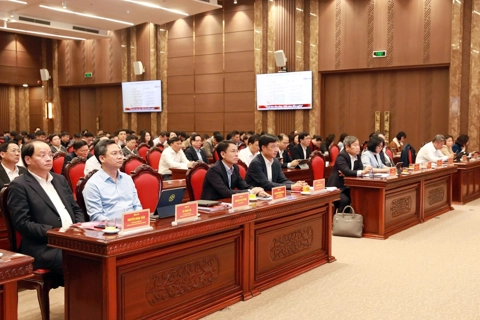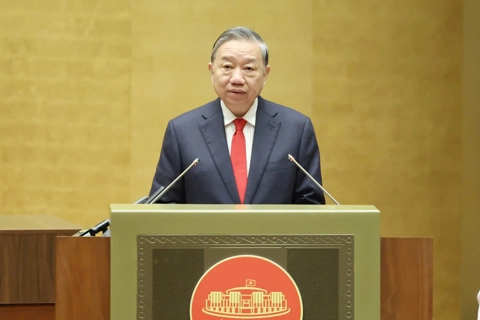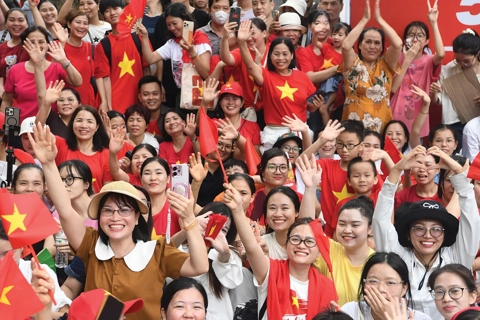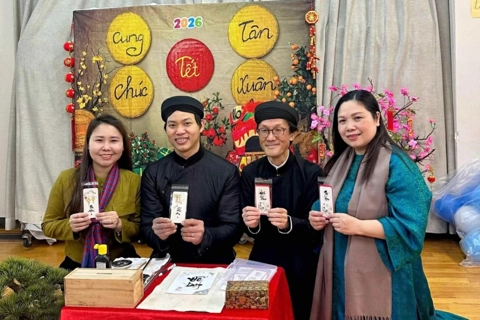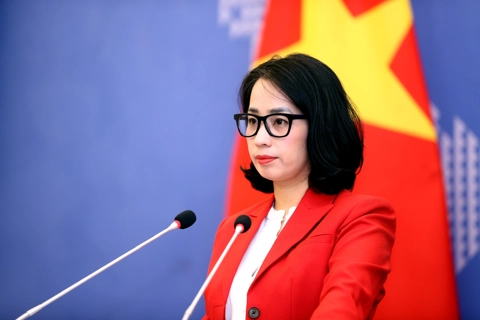Prime Minister urges export diversification to avoid single-market dependence
THE HANOI TIMES — Prime Minister Pham Minh Chinh on April 5 called for efforts to diversify Vietnam's export markets and avoid over-reliance on any single country.
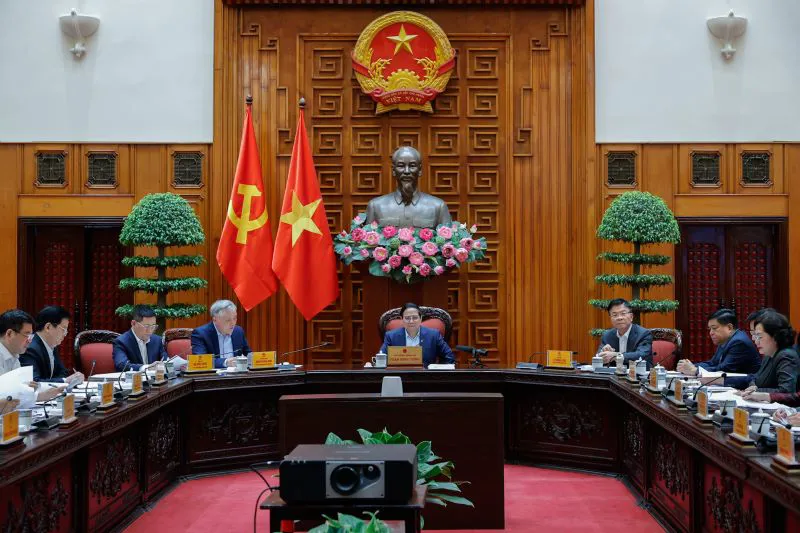
Prime Minister Pham Minh Chinh (center) chairs a meeting with government agencies to discuss how to deal with the recent US reciprocal tariffs. Photo: VGP
He requested that ministries and agencies find solutions after the United States announced reciprocal tariffs on goods from many countries, including Vietnam.
Vietnam needs to explore new and potential markets such as the Middle East and Central Asia, the prime minister said.
He stressed the need to restructure, digitize, and green the economy to achieve long-term sustainable development. "This approach should focus on innovation, knowledge-based industries, and the circular economy."
According to Prime Minister Chinh, recent global economic developments present both pressures and opportunities for Vietnamese businesses and the country to reform and grow.
He instructed the Ministry of Finance to review tax policies and expand the list of goods eligible for preferential tariffs under Decree 73, issued on March 31, in line with the outcome of a high-level phone conversation between General Secretary To Lam and US President Donald Trump on April 4.
Chinh also ordered the Ministry of Industry and Trade to review goods from the United States that are in demand in Vietnam and to move forward with talks to upgrade the Vietnam-US bilateral trade agreement.
He also instructed the Ministry of Foreign Affairs to arrange meetings between Vietnam's negotiating team and key US contacts and to work with the Ministry of Industry and Trade to seek a delay in US tariffs while talks are underway.
The prime minister underscored that negotiations with the US should not affect Vietnam's relations with other trading partners.
He urged ministries to continue supporting businesses by adjusting taxes and fees and reaffirmed the government's commitment to stand by citizens, businesses, and investors in challenging times.
Chinh also ordered closer coordination between fiscal and monetary policies, greater digitization in tax collection, wider use of e-invoicing, and stricter controls on product origin, branding, and intellectual property rights.
He asked all ministries to develop initiatives to ensure a balanced and sustainable trade relationship with the United States.
"We should address US concerns based on mutual benefits and shared risks. Vietnam and the US have become Comprehensive Strategic Partners, and the two economies are complementary rather than competitive," said Chinh.
The US remains Vietnam's largest export market, while Vietnam is one of the largest trading partners of the US and the largest in ASEAN. "The reciprocal tariffs, if enforced, will hurt Vietnam's exports, its indirect markets, and also American consumers," Chinh said.
On April 3, President Donald Trump signed an executive order imposing minimum and additional tariffs on 180 importing markets, with Vietnam facing one of the highest tariffs at 46%.
On April 4, General Secretary To Lam had a phone call with President Trump, in which To Lam said Vietnam was willing to lower tariffs on US imports to 0% and called on the US to do the same for Vietnamese exports.
He also encouraged the US to continue exporting goods in demand in Vietnam and to facilitate further American investment in the country.
Vietnam has also addressed most of the US concerns, notably by reducing tariffs through Decree 73/2025/ND-CP, which increases the number of items eligible for preferential import tariffs.






